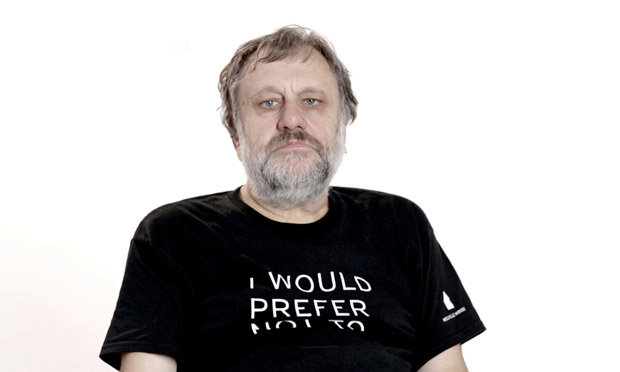 In a commercial culture it shouldn’t surprise anyone that what we call commercials dominate the art world. We have commercial galleries for commercial art, and so for the poetic we have jingles and advertising campaigns. While the arts attempted to reach the masses that were not interested or interested as a weekend hobby, popular art or people’s poetry was quickly appropriated by commercial interests for capitalism. How can a hobbyist compete or garner respect from paid professional commercial creative writers? Literary poets and artists have remained in the situation in which W.B. Yeats found himself and called, in his notebooks, “the crass commercial world that had imposed its values on all aspects of life outside the ‘toy Noah’s Ark’” upon which artists seek survival. The arts have even found defeat in universities and art schools that now call themselves schools or art and design. The tag on is more than that; it is an insurance policy for survival. Business minded parents of students will be attracted to the school because of the word “design” as will funding and grants. If the schools were left to the arts merely, they would close or be subject to a small faithful and focused group of students and a faculty less concerned with the house in the suburbs and retirement. While these schools would create a small counter culture of knowers and intelligentsia, fewer (if that is possible) would understand the work produced by graduates than viewers and readers do today. That audience would have been what Yeats called a “toy Noah’s Ark,” a make believe culture. As it is, commercial art and poetry by commercial creative writers embedded in capitalism’s ideology, hold more sway, are more effective and dominate the everyday life of Western / global culture. If language grows thin as it is adopted by foreign tongues in foreign lands, poetry in English is cheese cloth, open to the simplest verse as slogan. Add to thin language due to little shared culture, a lack of liberal arts as common ground that would make up at least topics important enough to the culture that ongoing discussion could ensue. Due to specialization early in education, especially among the lower classes, the West is in possession of a thin language and little in the way of common ground. The ground that is available to all is rationality to the point of scientism, the belief that scientific metaphors may be applied to every problem and aspect of life, so that the humanities become what Guyatri Spivak calls “disc jockeys for an advanced technology.”
0 Comments
 In the YouTube video talk titled “The Method of Slavoj Zizek’s Madness: Analysis” Paul Taylor reminds us by way of unpacking Starbucks and Nike’s Tiger Woods ad campaigns how the “act now” ideology works in our culture for emergency aid or ongoing annual aid charity events. The West is always attempting to repair not only natural disasters but the systemic, objective violence that its policies and actions (just do it) cause. Walter Benjamin’s interpretation of Paul Klee’s Angelus Novus clearly explains Taylor’s point. In his understanding he refers to history and a storm blowing “from Paradise; it has got caught in his wings with such violence that the angel can no longer close them. The storm irresistibly propels him into the future to which his back is turned, while the pile of debris before him grows skyward. This storm is what we call progress.” The West uses systemic violence with a promise of a better life for the few while the rest of the population can never cash in their I Owe You. For Benjamin systemic or objective violence is an attempt at order within a society, but with every problem “solved” another is born from the solution. For someone living in the United States the systemic violence is more complicated. Here the mythology of “rugged individualism” (the self-made man) permeates the culture’s psyche and its value system encouraged by social authority in capital interests and supported by the government. When the system violates people in the States, their frames of mind are to blame themselves. To them, systemic (objective) violence is interpolated as subjective violence. On its surface the blaming may even appear narcissistic and arrogant to take on that pose. However, they blame themselves to such an extent as to often visit violence upon themselves as punishment, or using the values of the system that has told them that they are worthless on themselves, they unable to see the forest for the tree. An example of how objective and subjective violence plays out can be seen in the movie “Spotlight.” The victims of the systemic abuse by priests go on to blame themselves for their shame and the damage done to them: Alcohol, drugs, suicide are subjective violence responding to objective violence. When Robby the editor at Spotlight recognizes his part in the objective violence and how systemic the cruelty is, he is humbled, has learned something late in life. He might have done something sooner, but through willed-ignorance and the encouragement from the system causing the objective violence, he went along. Thank you Nur Kaalim
In light of Greece’s confrontation with technocrats and Brexit I thought I would repost a thought from last year. It may apply during this time in which we live. Perhaps we are falling out of love with capitalism. We may be prepared to imagine (as our “Founding Fathers” attempted) how to construct / clear / map out a path forward without what Gayatri Spivak calls disc jockeys (technocrats of capitalism). “And those who were seen dancing were thought to be insane by those who could not hear the music.” – Friedrich Nietzsche In part Slavoj Zizek has remarked, "What they offer us is precisely love without the fall, without falling in love, without this totally unpredictable dramatic encounter. And that’s what I find very sad. I think that today we are simply more and more afraid of this event or encounters. You encounter something which is totally contingent but the result of it if you accept it as an event is that your entire life changes. . . . "A totally contingent encounter but the result can be that your whole life changes. Nothing is the same as they say. You even spontaneously perceive your entire past life as leading towards this unique moment, you know, the illusion of love is 'oh my God, I was waiting all my life for you.'” Zizek criticizes dating websites and introduction agencies that match couples. He encourages people in the West to continue to “fall in love,” a method of coupling that began with the troubadours. He tells us that the “match up” method lacks contingency and the irrationality that embeds experience. He reminds us that by using computer matching sites and agencies aiding with compatibility tests we are reverting to the pre-modern arranged marriages. He explains why falling in love is important for couples and suggests why it is so for Western culture. He explains that two people are attracted to each other because an imperfection or flaw in the ideal that each holds in his/her mind. (This cause of attraction is subconscious of course, but that flaw (and that later discovery) may be what the lover is itching to experience and learn from.) Zizek explains that when two people fall in love, it is a violent experience because each person’s world changes. Each orientation is altered so that each experiences the world differently, often an attempt by each to orient as one, melding two separate life experiences. Their entire lives change. He also explains that there is a violence when the ideal that each person in the couple embraces falls away to reveal the actual person that each is with the flaws. This is the violence of discovering the actual other. The two areas of violence in love interest him precisely because of the growing or learning that takes place for each partner often over a lifetime. I believe there is another reason that Zizek is interested in the West continuing the tradition(?) of falling in love. He never actually says this though. I believe he sees that to lose the experience is to lose individual freedom and the West’s way of changing ideologies, how we via contingency move from one ideology to another. Without this ability in practice, revolution would be impossible, and even reform would seem hopeless. We in the West fall in love with an ideology that changes our orientation to the world often for generations. That ideology has its flaws (and that is what attracts us subconsciously) and sooner or later when the benefits of the ideology have been lived fully but the flaws have been experienced fully also, we release the beloved ideology. At that point we are ready to fall in love again. This where we are currently in the West: Ready for the contingency of falling in love with a new ideology to take hold. Just thinking. Corporate interests wish to take over education under the guise that they can do it cheaper. However, what the student will be getting is standardized everything. History, literature, etc. would be taught as they wish and at their whim. Their lobbyists write the laws now while legislators are busy chasing billionaires for election funds to put on a show at C-SPAN. (No need for legislators but we don't seem to understand that yet.) The one thing that the legislators do for their campaign money is to underfund all government agency functions until each is useless and farming it out to private concerns.
Yet we can ship planes filled with pallets of cash to foreign lands where we might bribe officials from where our army is fighting: Austerity, austerity, austerity. More and more they are now the sucklings at unrepresented taxpayer dollars. Students will not know what corporate interests don't want them to know: In many cases a bonafide underclass in the serf style. The kicker is that the wealthy can claim that the poor are attending private school also. The ACA is a great example of what I am suggesting. Instead of a single-payer we allow corporate bottom lines to determine human health worth. Palin’s death panels won’t be needed. (Soon, because of a noncompliance a patient will be cut off from funding and treatment.) It should motivate all of us or we could go on smiling and saying, “have a nice day” to each other. Just thinking. |
Archives
May 2024
Categories |



 RSS Feed
RSS Feed